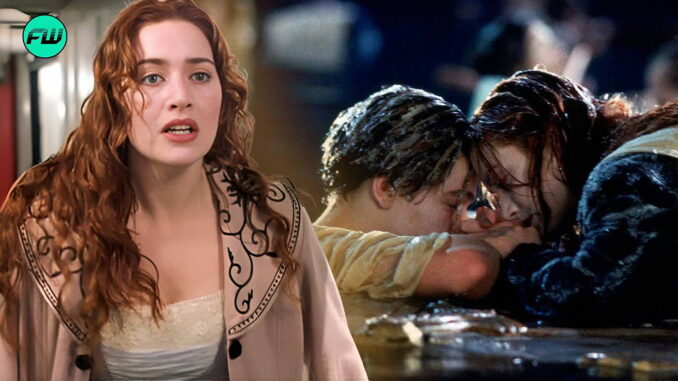
The biting Atlantic wind, the groan of steel, the desperate cries of a thousand souls succumbing to the icy grip of the ocean – these are the indelible brushstrokes of Titanic, a film whose tragedy is as monumental as the ship it depicts. Yet, amidst the grand spectacle of disaster and a love story forged in fire and ice, a single, unassuming piece of debris has carved out its own curious place in cinematic lore: the floating panel, or "door," that bore Rose DeWitt Bukater to safety while Jack Dawson, her impoverished paramour, froze to death in the frigid waters below. For decades, this plank of wood has been the subject of a relentless, often impassioned, debate: Could Rose have saved Jack?
Recently, Kate Winslet, the very actress who embodied Rose, waded back into these choppy waters, fanning the flames of a discussion that, for many, remains an open wound. Her comments, often delivered with a rueful smile, acknowledge the age-old query, giving a kind of papal blessing to a fan theory that has stubbornly refused to sink. When Winslet muses, even jokingly, about the space on that door, she doesn't just reignite a debate; she imbues it with a fresh layer of authenticity, a whisper from the character herself, echoing across the decades.
The scene itself is a masterclass in cinematic despair: Rose, shivering but alive, sprawled on a piece of wreckage barely large enough for her, her fingers gradually slipping from Jack's as his blue lips whisper a final, heartfelt promise. It is the ultimate tragic farewell, a testament to sacrifice and an enduring love that defied class, convention, and, ultimately, the laws of thermodynamics. Or did it?
For years, the internet has buzzed with amateur physicists, engineers, and heartbroken romantics dissecting the dimensions of the wooden panel, its buoyancy, and the weight distribution of two teenagers. Scientific studies, even famously conducted by the MythBusters, have seemingly proven that with a little ingenuity – perhaps a life vest strapped underneath for added flotation – the door could have supported both Rose and Jack. The evidence, they argue, is irrefutable: Jack's death was not a narrative necessity but a simple, solvable problem, a fatal oversight.
Yet, to reduce Jack's demise to a mere engineering flaw is to miss the beating heart of Titanic's enduring power. Director James Cameron himself has dismissed these arguments, stating plainly that Jack "had to die." And herein lies the crux of the illustrative debate: it is a battle between cold, hard physics and the unyielding demands of narrative.
The door, in this context, transcends its material form. It becomes a crucible, a symbol of the impossible choices and the brutal finality of disaster. For Rose to survive, Jack had to die. His sacrifice is the ultimate act of love, ensuring her future, granting her the life they had dreamed of. If Jack had clambered onto that door, sharing the space and miraculously surviving, the film's cathartic sorrow, its poetic cruelty, would have been diluted, perhaps even lost. His death elevates their love story from a tragic romance to an epic, mythical tale of selflessness.
Kate Winslet's revisiting of this debate isn't just a casual celebrity comment; it's an acknowledgment of how deeply these fictional lives have become intertwined with our own emotional landscapes. We don't just watch Titanic; we experience it. We grieve for Jack, not just as a character, but as an unfulfilled promise, a love snatched away too soon. The debate over the door is our collective ache, our desire to rewrite tragedy, to find an alternative ending where love, not physics, triumphs.
Ultimately, whether the door could have held two people is a question of logistics, but whether it should have is a question of storytelling. The illustrative power of this enduring debate lies not in finding a definitive answer, but in its ability to keep the memory of Jack and Rose alive. It speaks to our human need for closure, our longing for happy endings, and our profound engagement with the myths we create. Kate Winslet, by speaking of the door, isn't just settling a score; she's inviting us all back to the deck of the Titanic, to shiver with Rose, and to mourn Jack once more, acknowledging that for some stories, the "what if" is as eternal as the love it seeks to question.